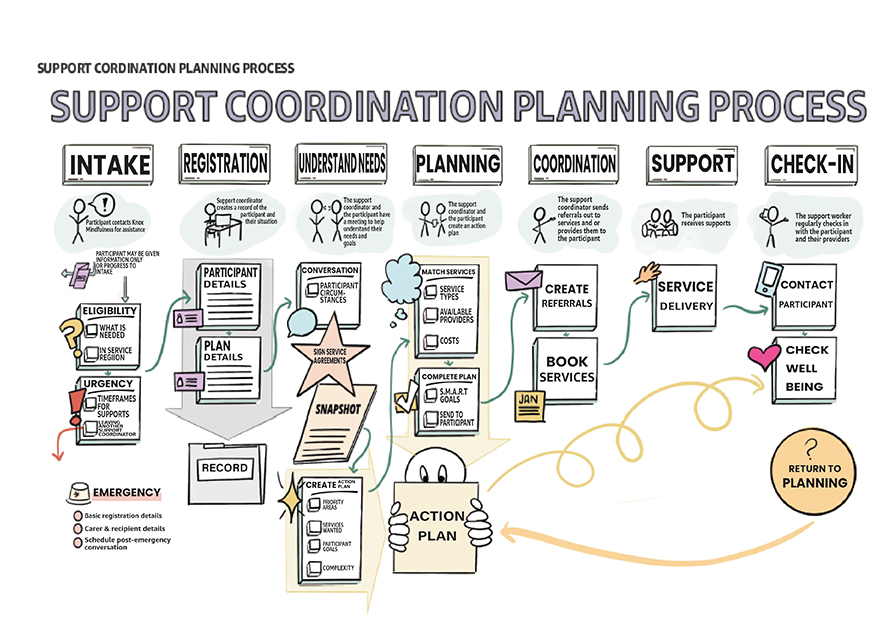Making the most of your NDIS plan.
Our goal is to maximize the benefits of your NDIS plan. Our support coordinators, with a focus on mental health care, approach their work with compassion. We're dedicated to guiding you through the intricacies of NDIS regulations and addressing any challenges you face along the way. Ensuring alignment between your chosen services and your aspirations is our priority, guaranteeing they meet your needs, desires, and goals.
The process of working with us is clear and simple—so simple that we made it visual for you! But at Knox Mindfulness, our support coordination is not for everyone; that's why we go through an initial conversation so we can see if our service will be able to give you the most for your needs!


FAQ
If you're eligible for NDIS funding, you might receive support coordination based on your disability and individual needs. If you don't have a NDIS plan or support coordination in your plan, you can talk to our friendly staff to explore your options.
There are 3 levels of support coordination that can be included in a participant's plan:
Level 1: Support Connection - Support helps a participant understand their plan and connect with NDIS providers and community, mainstream, and other support to get the most out of their NDIS plan.
This is to help you increase your confidence and skills so that you can eventually manage your own plan!
Level 2: Coordination of Supports - Support to put in place a mix of supports to increase a participant's capacity to maintain relationships, manage tasks, live more independently and be included in their community.
It builds the participant's confidence and skills to direct their lives, not just their services.
Level 3: Specialist Support Coordination - A higher level of support for participants whose situations are more complex and who need specialist support.
A specialist support coordinator will assist participants in managing challenges in their support environment and ensure a consistent delivery of service.
Specialist Support Coordination comes into play when you need a specialist like an Occupational Therapist, Psychologist, or Social Worker to provide Support Coordination- style activities.
A Psychosocial Recovery Coach focuses on providing capacity-building supports, not core- type supports like assistance with daily activities or community engagement. Their service is tailored for people with primary psychosocial disabilities, with a focus on coaching and collaborating with other services.
Yes, depending on your plan or situation, you may choose to have both support coordination and a psychosocial recovery coach to address different aspects of your needs.